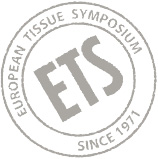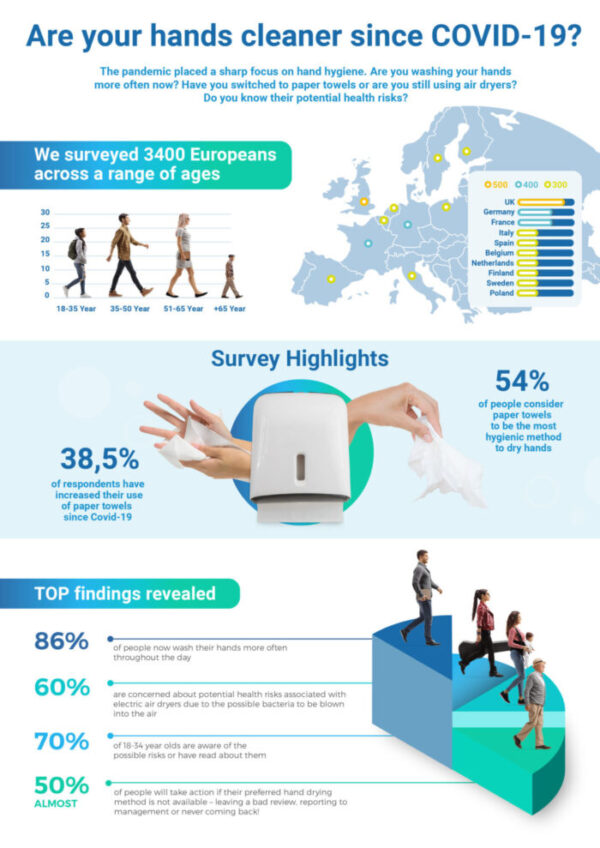People wash hands more frequently, are concerned about health risks associated with electric dryers, and will take action if they don’t find their preferred drying option
Brussels, Belgium, 19 September 2022 – A research survey has found that Europeans are more aware of the importance of proper hand washing and drying since the start of the Covid-19 pandemic. They are washing their hands more frequently, demanding paper towels for hand drying due to their excellent hygiene properties and taking action when their preferred option is not available in public washrooms.
The survey, carried among thousands of people across 10 countries in Europe[1], and sponsored by ETS, probes people’s attitudes towards hand hygiene post pandemic and explores how habits and preferences have changed. Its findings serve up food for thought for the healthcare sector and those responsible for hygiene and cleanliness in public washrooms: Covid has clearly heightened awareness of health and hygiene issues and people now expect high standards and facilities when they visit washrooms on the move.
Over 86% of people report having washed their hands more often since the start of the pandemic – rising to over 90% in Spain and Italy. More than half also report that the pandemic had altered their preferred method of hand drying in public washrooms – particularly in Sweden and among those aged 35-50. In most countries, men have changed their habits more than women – notably in the Netherlands. The majority of respondents across all age groups believe that paper towels are the most hygienic method of hand drying and prefer them to any other method.
Almost 60% of people confirm that they are concerned about potential health risks associated with electric hand dryers due to the potential for bacteria to be blown into the air. Men are more concerned than women and younger people are significantly more concerned than older ones, with 70% of 18–34-year-olds aware of possible risks or having read about them. The Spanish are the most concerned and the Italians and British the least.
Furthermore, some two-thirds of people admit that if an establishment does not provide their preferred method of hand drying then it affects their overall perception of the place. And it doesn’t stop there. Almost half said they would take action if their preferred hand drying method was not available: some will leave a bad review – particularly the Finns and the Poles; others will leave the establishment immediately and never go back – particularly the Italians and Belgians; and almost 20% of men will report it to the management – especially the Poles, Finns and Germans. The British, true to the stereotype, were the least likely to complain.
The research confirms that the hand hygiene lessons learned during the Covid-19 pandemic have had a lasting impact on the habits of Europeans and they now have greater expectations of public washrooms. The cleaning, procurement and health sectors will need to be prepared and observe optimal hygiene standards in washrooms while also offering accessed to people’s preferred method of hand drying: paper towels.
[1] Belgium, France, Finland, Germany, Italy, The Netherlands, Poland, Spain, Sweden and UK
This page is also available in: englanti ranska saksa italia puola espanja portugali ruotsi hollanti












